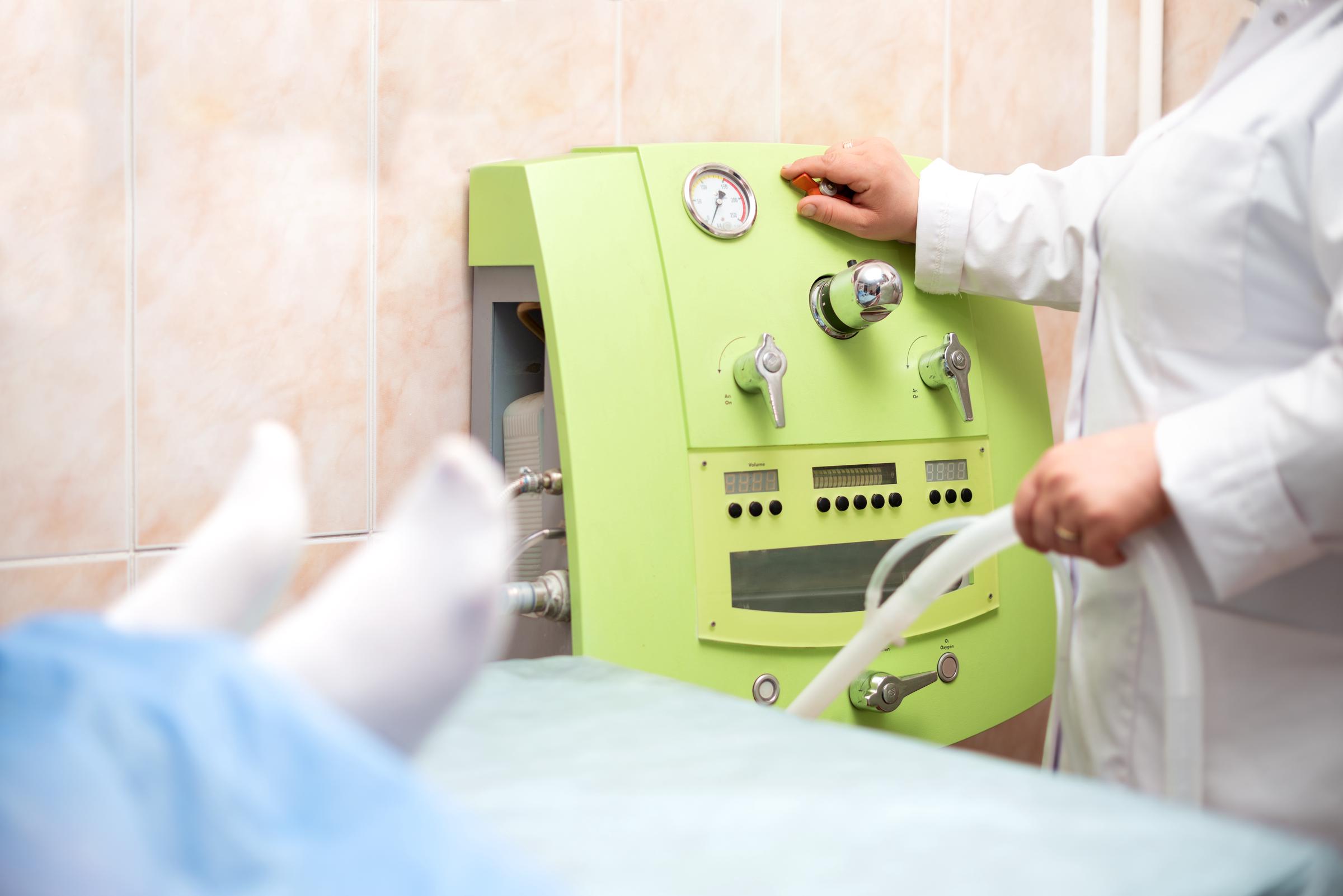
Colon Cleansing: What You Should Know Before Trying It
Colon cleansing has been causing quite a buzz on social media in recent years, with some alternative health practitioners recommending it for general wellness. If you're thinking about exploring the procedure for your gut health, here's what you should know.
Colon cleansing might sound like exactly what you need — a complete reset for your gut after struggling with constant bloating, sluggish digestion, or overall feeling "off" — at least as far as alternative medicine suggests.
While it is often touted as a proactive approach to good colon health, is it necessary to do it routinely and are there any proven medical benefits?

A doctor talking to a patient | Source: Freepik
What Is a Colon Cleanse?
A colon cleanse (also called colonic irrigation, hydrotherapy, or colon detox) refers to practices designed to flush out the large intestine, a.k.a the colon. It's usually done to prepare for certain types of procedures, such as a colonoscopy.
In some cases, people with fecal incontinence or chronic constipation may undergo a medically supervised colon cleanse to help regulate their bowel movements. The process involves flushing out the colon with liquid, typically water.

A doctor operating a colon cleansing machine | Source: Getty Images
During the procedure, a colonic hygienist inserts a tube into your rectum while you lie on a table. A large amount of water is then pushed through the tube into your rectum to flush the colon, which is subsequently released, similar to a bowel movement.
You can also perform a colon cleanse at home with powdered or liquid supplements (enemas, laxatives, herbal teas, etc.). Some supplements are taken orally (through the mouth), while others are taken through the rectum, with the purpose of helping the colon expel its contents.

A woman takes a pill to relieve her digestive condition | Source: Getty Images
What Are the Benefits of a Colon Cleanse?
One of the main theories behind colon cleansing is detoxification. The idea — which dates back thousands of years — suggests that undigested food creates toxins that enter the bloodstream, leading to chronic health problems such as fatigue, arthritis, low energy, headaches, high blood pressure, weight gain, and skin issues.
The purported benefits of a colon cleanse include:
- The removal of toxins in the body
- Improved immune system function
- Improved digestion
- Better mood
- Assistance with weight loss
- Lower risk of colon cancer

A senior woman enjoying a workout | Source: Getty Images
According to experts, however, there is little to no scientific research backing these claims. In fact, the colon is already perfectly capable of "detoxifying" itself. "The colon already removes toxins on its own, so no extra help is required," Toni Golen, MD, says on Harvard Health Publishing.
"And none of the supplements [...] or colonics (procedures that flush the colon with fluid) hawked for this purpose are FDA-approved," she continues.
Dr. David Hoffman, medical oncologist at Cedars-Sinai Tower Hematology Oncology Medical Group, agrees. "The presumed health benefits of these treatments are not proven," he notes. "There are no established scientific benefits and in fact, there's actually risk when doing these treatments in a non-medical setting."

A doctor talking to a patient in his office | Source: Getty Images
What Are The Risks of Regular Colon Cleansing?
Undergoing a colon cleanse can pose serious risks to your health, particularly if you have a preexisting condition, such as diverticulitis, inflammatory bowel disease, heart or kidney disease, or prior colon surgeries. The risks include:
- Dehydration or dizziness
- Infection from contaminated instruments or facilities
- Electrolyte imbalances in the bowel
- Bowel tears
- Cramping
- Diarrhea
- Bloating
- Irritation in the skin around the anus

A woman suffering from abdominal pain | Source: Getty Images
Safety Measures to Take If You're Still Considering a Colon Cleanse
If you're still considering undergoing a colon cleanse, it is highly advised that you speak with your doctor to understand your unique risks prior to the procedure. "We understand that many patients like to try alternative treatments that complement their traditional healthcare," Dr. Hoffman says.
He also recommended researching and finding a reputable provider with verifiable credentials. Additionally, if you want to boost your colon health naturally, prioritize whole grains, fruits, and in your diet, limiting alcohol, avoiding smoking, and staying active.
The information in this article is not intended or implied to be a substitute for professional medical advice, diagnosis or treatment. All content, including text, and images contained on AmoMama.com, or available through AmoMama.com is for general information purposes only. AmoMama.com does not take responsibility for any action taken as a result of reading this article. Before undertaking any course of treatment please consult with your healthcare provider.
